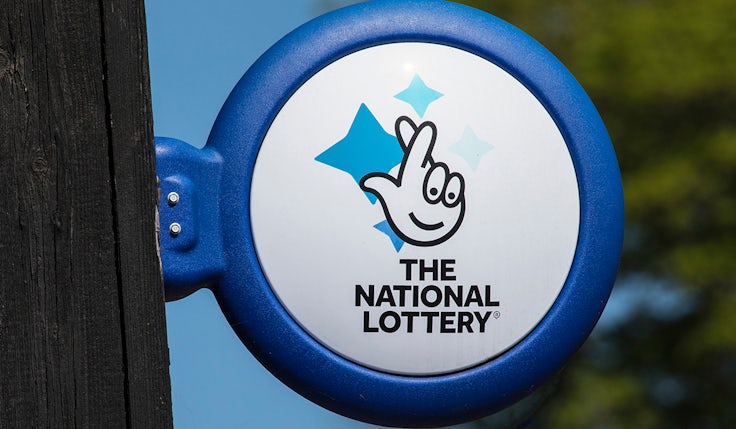Allwyn beats Camelot to National Lottery licence with pledge to ‘revitalise’ brand
The loss comes despite a successful few years for Camelot, which managed to turnaround declining lottery sales and significantly increase its brand health despite the impact of Covid-19.
 National Lottery operator Camelot has lost its bid to continue running the service when its current licence expires in 2024, usurped by multinational lottery operator Allwyn Entertainment.
National Lottery operator Camelot has lost its bid to continue running the service when its current licence expires in 2024, usurped by multinational lottery operator Allwyn Entertainment.
The Gambling Commission has named Allwyn its “preferred applicant” for the fourth National Lottery licence. The European business has committed to “deliver growth and innovation” through investment across its products and channels, the Commission says.
In a statement, Allwyn says its proposal aims to increase returns to good causes by “revitalising” the National Lottery in a “safe and sustainable way”.
“With the Gambling Commission having put its trust in us, we can immediately start to enact our exciting plans to deliver The National Lottery back to the heart of our country,” says British entrepreneur Sir Keith Mills, who led the Allwyn bid.
“We will do this by rekindling the meaning The National Lottery has for each of us, whether as individuals or as part of the communities we live in; whether we play The National Lottery or not.”
Led by Mills, Allwyn UK has built a team of local experts who work closely with the business’s lottery brands across Europe to learn and share best practice in lottery operations, with a particular focus on how to improve draw-based games.‘Keep it simple’: Camelot’s Keith Moor on the secret to being an effective marketing leader
Launched in 1994, the National Lottery is one of the world’s largest lotteries. Camelot has held the licence for the service since then, but its current and third licence is due to expire in 2024.
According to the Gambling Commission, the National Lottery has raised more than £45bn for 660,000 good causes across the UK since launch.
Branding the institution a “great national asset”, the Commission’s CEO Andrew Rhodes says he is “confident” the choice to award the lottery’s fourth licence to Allwyn will be a “highly successful” one.
“One that maximises returns to good causes, promotes innovation, delivers against our statutory duties, and which ultimately protects the unique status of the National Lottery,” he adds.
The Gambling Commission claims to have had had the highest number of applicants for the licence since the 1994 competition, with four making it through to the final stage: Allwyn, Sisal Spa, The New Lottery Company and Camelot UK Lotteries.
Camelot has been named “reserve applicant”. A 22 month transition period will soon commence, led by Allwyn chair Justin King. Allwyn will take over responsibility for the lottery’s operations from 1 February 2024.
Camelot CEO Nigel Railton says he is “incredibly disappointed” by the news.
“But we still have a critical job to do, as our current licence runs until February 2024,” he says.
“I’m enormously grateful to our 1,000-plus employees who have been unwavering in delivering record-breaking results during the current licence. And I know they remain absolutely determined to build on our four and a half years of successive sales growth – which has seen us achieve record sales in each of the last two years, resulting in the best-ever returns to good causes from ticket sales last year.”
Last year, Marketing Week columnist Mark Ritson identified Camelot’s turnaround strategy for the National Lottery as the “perfect example” of a successful brand revitalisation. The business lost focus in 2017, with brand tracking showing national positivity towards the service was in consistent decline, and ticket sales were falling. Compared to 2016, sales were down by £600m. Follow The National Lottery’s example: Don’t rebrand, revitalise
According to Ritson, this decline was a result of a shift towards promoting a player’s personal potential to win money, rather than the National Lottery’s function in British culture as a provider of funds to good causes.
However, the business successfully turned this decline around. New CMO Keith Moor, who joined Camelot in 2019, shifted the focus back towards the lottery’s contribution towards society and good causes, increased marketing investment, and moved advertising spend from short-term, product-based activity to building a narrative around the brand.
This values-driven mission drummed up interest in players, despite increasingly fierce competition in the market and a particularly challenging year as Covid-19 hit the UK. Camelot reported a sales increase of 6% for the year to March 2021, with the amount raised for good causes hitting £1.9bn, £1.2bn of which went directly to Covid-19 support.
The brand revitalisation also led to The National Lottery achieving its highest ever brand score on YouGov’s BrandIndex in 2020. With a score of 8.1, compared to 1.9 the year before, The National Lottery was the second most improved brand in terms of perception in the UK, behind only Netflix.
As a result, Camelot won the award for Long-Term Brand Building Excellence at the Marketing Week Masters last year. Moor was also revealed as Marketer of the Year.





